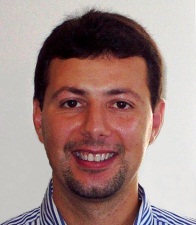- 16:00 – 17:15
- Speaker: Sofiene Tahar, Professor and Tier I Concordia Research Chair, Electrical and Computer Engineering, Concordia University.
- Biography: Prof. Sofiène Tahar received in 1990 the Diploma degree in computer engineering from
 the University of Darmstadt, Germany, and in 1994 the Ph.D. degree with “Distinction” in computer science from the University of Karlsruhe, Germany. Currently he is Professor in the Department of Electrical and Computer Engineering at Concordia University, Montreal, where he is holding a Senior Research Chair in Formal Verification of System-on-Chip. Dr. Tahar is founder and director of the Hardware Verification Group (http://hvg.ece.concordia.ca) at Concordia University, which carried pioneering work in the past 20 years in the areas of formal hardware verification, microprocessor and system-on-chip verification, analog and mixed signal circuits verification, VLSI design automation, and formal probabilistic, statistical and reliability analysis of systems. Prof. Tahar has received several awards and distinctions, including in 2007 the title of Concordia University Fellow for being the best senior researcher of the year, and in 2010 a National Discovery Award provided to Canada’s top 100 Engineering and Sciences researchers. Dr. Tahar is member of the Order of Engineers of Quebec, Senior member of IEEE and Senior member of ACM.
the University of Darmstadt, Germany, and in 1994 the Ph.D. degree with “Distinction” in computer science from the University of Karlsruhe, Germany. Currently he is Professor in the Department of Electrical and Computer Engineering at Concordia University, Montreal, where he is holding a Senior Research Chair in Formal Verification of System-on-Chip. Dr. Tahar is founder and director of the Hardware Verification Group (http://hvg.ece.concordia.ca) at Concordia University, which carried pioneering work in the past 20 years in the areas of formal hardware verification, microprocessor and system-on-chip verification, analog and mixed signal circuits verification, VLSI design automation, and formal probabilistic, statistical and reliability analysis of systems. Prof. Tahar has received several awards and distinctions, including in 2007 the title of Concordia University Fellow for being the best senior researcher of the year, and in 2010 a National Discovery Award provided to Canada’s top 100 Engineering and Sciences researchers. Dr. Tahar is member of the Order of Engineers of Quebec, Senior member of IEEE and Senior member of ACM. - Abstract: Next-generation transportation systems, to smart grid and smart cities, to health care systems. A CPS is primarily composed of several electronic, communication and controller modules and some actuators and sensors. The mix of heterogeneous underlying technologies poses a number of technical challenges to the design and more severely to the verification of such complex infrastructure. In particular, if the network control is decoupled from the hardware and given to a software application as an SDN, it will make the system more error prone. In fact, a CPS shall adhere to strict safety, reliability, performance and security requirements, where on needs to capture both physical and random aspects of the various CPS modules and then analyze their networked inter-relationship. Oftentimes however, system bugs remain uncaught during the analysis and in turn cause unwanted scenarios that may have serious consequences in safety critical applications. In this talk, we introduce some of the challenges surrounding the design and verification of contemporary CPS with the advent of smart technologies. We will use the particular case of Wireless Sensor Networks (WSN) to show the vulnerability of today’s design and verification technologies and provide some advanced alternative solutions.

